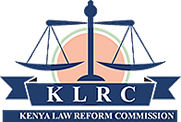Tribunals: An Overview
Definition and Characteristics
The Committee on Administrative Tribunals and Enquiries (the Franks Committee) in Britain defined Tribunals as “machinery provided by Parliament for adjudication rather than as part of the machinery of administration” . The Franks Committee had been appointed in 1954 to address complaints about the operation of Tribunals in Britain. It reported in 1957 and among its key recommendations was that Tribunals were part of the adjudication machinery, which must operate independently of Government Departments. In this respect, the Committee observed:
“We consider that tribunals should properly be regarded as machinery provided by Parliament for adjudication rather than as part of the machinery of administration. The essential point is that in all these cases Parliament has deliberately provided for a decision outside and independent of the Department concerned…and the intention of Parliament to provide for the independence of tribunals is clear and unmistaken.”
As part of the adjudication machinery, the Franks Committee further recommend that Tribunals must satisfy three fundamental principles of openness, fairness and impartiality:
“In the field of tribunals, openness appears to us to require the publicity of proceedings and knowledge of the essential reasoning underlying the decisions; fairness to require the adoption of a clear procedure which enables parties to know their rights, to present their case fully and to know the case which they have to meet; and impartiality to require the freedom of tribunals from influence, real or apparent, of Departments concerned with the subject-matter of their decisions” .
There are many different types of tribunals in Kenya, as in many other Commonwealth countries. They exercise administrative or quasi-judicial powers. Some, such as the Kenya Board of Mental Health are purely regulatory and advisory. Others such as the Rent Tribunals adjudicate disputes between citizens. Yet others like the Income Tax Tribunals hear disputes between citizens and public bodies. Some like the Medical Practitioners and Dentists Board register professional practitioners and exercise disciplinary control over them. Others, such as Liquor Licensing Tribunals have first instance jurisdiction to consider and approve applications for licences. Others such as the Agriculture Appeal Tribunal have only appellate jurisdiction from decisions of public officials or regulatory bodies.
Arising from the fundamental differences in Tribunals, the following have been identified as the general characteristics of Tribunals: -
- they are statutory bodies
- they are established to deal with particular types of cases or a number of closely related types of cases on a permanent basis as opposed to being set up for a one-off inquiry and do not have jurisdictions covering much wider range of subject matters like courts do.
- they are independent of the administration and decide cases before them impartially
- they reach binding decisions in the cases they hear
- their decisions are usually made by a panel or bench of members rather than by a single adjudicator
- members often do not serve full-time and are not professional judges or even lawyers
- they adopt a procedure similar to, but more flexible and simpler than a court of law
Rationale
One of the reasons put forward to explain the phenomenon growth and expansion of Tribunals is the great degree of regulation of economic and social activities witnessed in the welfare state. As virtually every sphere of economic and social life was regulated by statute or subsidiary legislation – landlord and tenant relationships, agricultural production, land use, delivery of professional services, urban planning, licensing of businesses, betting, gaming and gambling, etc- Tribunals became an ideal tool for addressing disputes and other issues that arose from the regulation. These included, for example, determination of who is qualified for specified licences, who is entitled to practice certain professions, the manner in which discretion is exercised in making those decisions, etc.
Even with the privatisation of much of the public sector, the importance and number of tribunals have not diminished.
Advantages
The resilience of Tribunals is primarily attributable to their advantages over ordinary courts of law. Prof S A de Smith has enumerated the advantages of Tribunals in the following terms:-
“A tribunal may be preferred to an ordinary court because its members will have (or soon will acquire) specialised knowledge of the subject-matter, because it will be more informal in its trappings and procedure, because it may be better at finding facts, applying flexible standards and exercising discretionary powers, and because it may be cheaper, more accessible and more expeditious that the High Court. Occasionally dissatisfaction with the over-technical and allegedly unsympathetic approach of the Courts towards social welfare legislation has led to a transfer of their functions to special tribunals…”
The Franks Committee expressed itself in similar terms on the advantages of Tribunals. It noted as follows:-
“Tribunals have certain characteristics which often give them advantages over the courts. These are cheapness, accessibility, freedom from technicality, expedition and expert knowledge of their particular subject. It is no doubt because of these advantages that Parliament once it has decided that certain decisions ought not to be made by normal executive or departmental process, often entrusts them to tribunals rather than ordinary Courts” .
Over and above the advantages noted above, Tribunals have additional advantages. Frequently the issues at stake may have adverse effects on a citizen, and yet be not justiciable in the strict legal sense. The aggrieved citizen may not have locus standi in the matter in the strict legal sense. The conduct that has aggrieved a citizen may not strictly speaking amount to a violation of the law, or no judicial remedies may be available. In all these instances where an aggrieved citizen may not obtain assistance from the regular courts, the Tribunals offer an appealing alternative.
